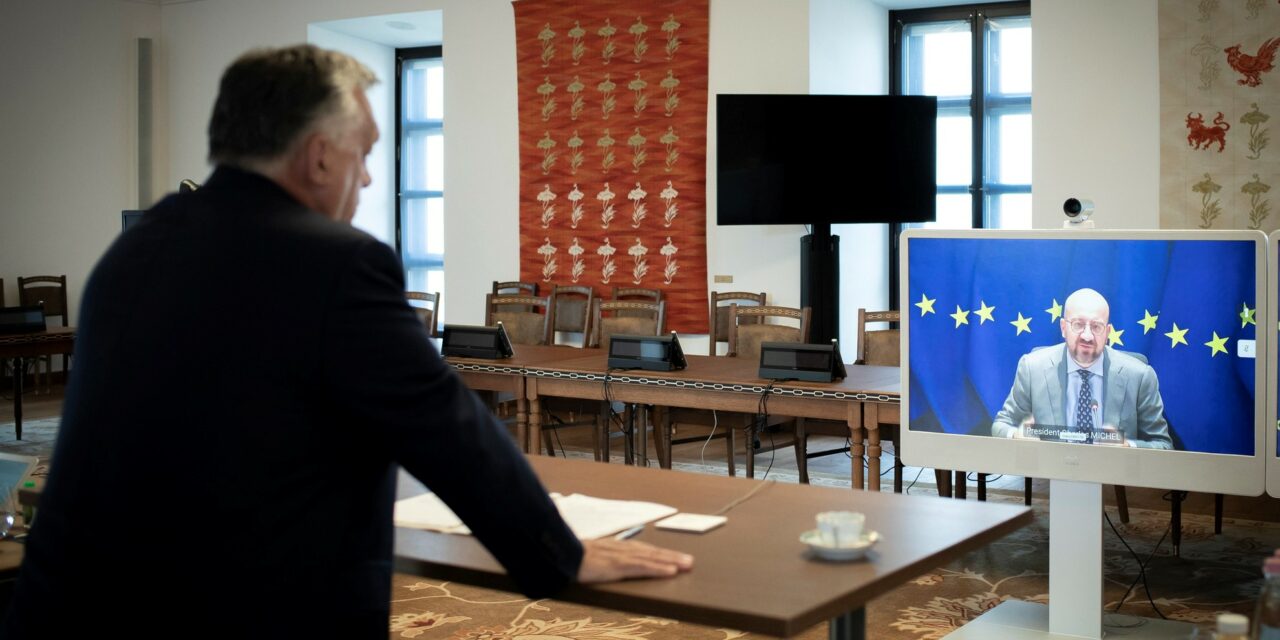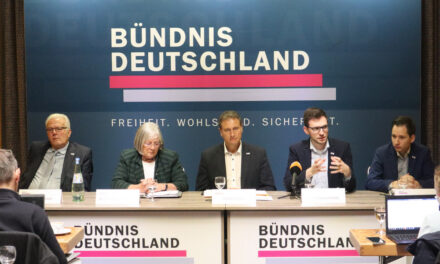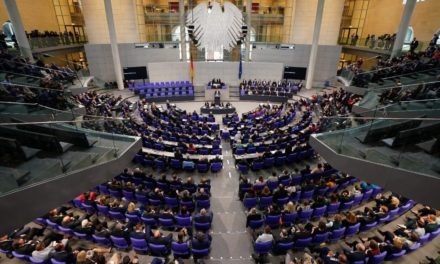Prime Minister Viktor Orbán recommends to the President of the European Council, Charles Michel, that the European Commission's proposal for the 6th sanctions package against Russia should not be included in the agenda of the next meeting of the body at the end of May.
In a letter sent to MTI by his press chief, Bertalan Havasi, the prime minister wrote: if accepted, the proposed sanctions would immediately cause serious supply disruptions in Hungary and undermine our vital energy security interests.
They would raise fuel prices by approximately 55-60 percent at a time when energy prices are already at a 40-year high, Viktor Orbán added, pointing out that neither Hungarian households nor the Hungarian economy as a whole can withstand such a price shock.
He wrote that Hungary is still heavily dependent on Russian energy imports, despite the fact that the share of Russian supplies in our oil imports has decreased from over 90 percent in 2010 to 64 percent by 2021 due to large-scale investments made in order to diversify routes and sources.
"Due to our geographical situation, it is not possible for Hungary to export Russian oil without a complete transformation of our refinery capacities, which at the same time necessitates increased and accelerated investments in our energy infrastructure, as well as a rapid green transition," the letter states. The prime minister also drew attention to the fact that, since the majority of investments cannot be financed on a market basis, the sanctions would require the reallocation of national funds to redundant fossil investments, while the European Union funds earmarked for this are available to us "only on paper".
Viktor Orbán put it this way: although the committee received encouraging signals that the REPowerEU Plan presented on May 18 provides an adequate solution to our problems, according to their preliminary assessment, it does not deal specifically and comprehensively with the serious concerns they raised.
He emphasized that, according to their interpretation, one of the main objectives of the plan is, in principle, the rapid reduction of the EU's dependence on Russian fossil energy sources. In terms of security of oil supply, the plan does address investment needs related to the modernization of petroleum product refineries, capacity expansion of existing infrastructure, and management of current bottlenecks.
However, it does not set a financial framework for the most affected landlocked Member States. In addition, it does not provide guidelines for the method and schedule of financing the urgent investment needs related to the replacement of Russian oil, explained the prime minister.
In the letter, he also drew attention to the fact that REPowerEU does not take into account the different national needs related to the energy supply structure of the member states.
"We are convinced that a clear distinction must be made between the short-term investment needs related to the reduction of Russian energy dependence and the longer-term needs of the transition to renewable energy," he wrote, emphasizing that this is of fundamental importance for some member states, such as Hungary, since both cannot be done at the same time. without posing a serious threat to our energy security.
The prime minister added that for this reason it is considered vital that EU funding becomes available for investments in transitional technologies and infrastructure. According to their preliminary assessment, it is not clear to what extent and under what conditions REPowerEU would support these measures.
He pointed out that the fact that the committee places the Recovery and Resilience Building Facility (RRF) at the center of REPowerEU poses serious problems for Hungary, because not all member states can use the RRF loans in order to reduce energy dependence.
Viktor Orbán highlighted that the proposed measures to reduce dependence on Russian energy represent the greatest challenge for the Central and Eastern European member states due to their historical determination and geographical location.
The application of the original RRF distribution key, which was developed to support the member states most affected by the impact of the COVID-19 pandemic on their economies, would in fact mean that resources are withdrawn from the very member states that need them the most, the prime minister wrote.
"During our action against Russia's aggression in Ukraine, our main value so far has been our unity. In this spirit, we supported the adoption of the previous five sanctions packages and cooperated with the Commission in order to find a solution to our problems related to the 6th sanctions package. We are committed to continuing negotiations with a pragmatic and result-oriented approach," he said.
He said: however, Hungary is not in a position to accept the 6th sanctions package until all key issues are resolved in the negotiations. Solutions must precede sanctions , he wrote.
In his letter, Viktor Orbán believes that, considering the weight of the questions that are currently still open, it is unlikely that a comprehensive solution will be reached before the extraordinary meeting of the European Council on May 30-31.
"I am convinced that in the absence of consensus it would be counterproductive to discuss the sanctions package at the executive level. It would only highlight our internal divisions without giving a realistic chance to resolve the differences," wrote the Prime Minister, who therefore recommends that this issue not be on the agenda at the next meeting of the European Council.
"Let the preservation of the unity of the European Union continue to be a priority for us," Viktor Orbán concluded his letter.
Source: MTI/hirado.hu
Featured image: MTI/Prime Minister's Press Office












